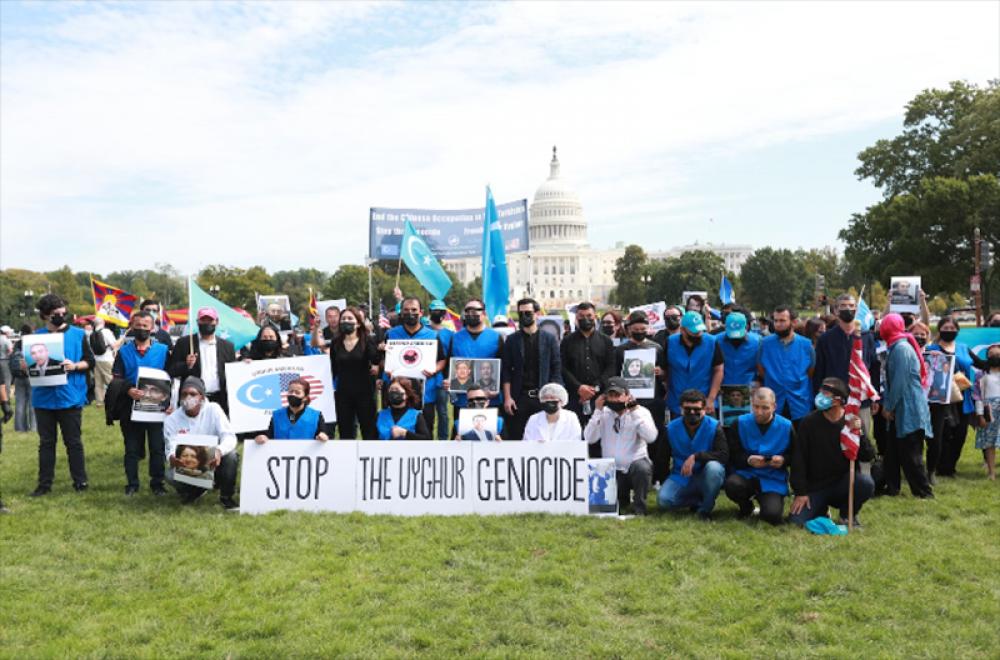Just Earth News | @justearthnews | 30 Aug 2023, 03:14 am Print
 Uyghur
Uyghur Photo Courtesy: Unsplash
The methods employed in cultural genocides often work subtly, without overt displays of mass casualties. Instead, they aim to gradually erase a nation's prospects and vitality.
The situation of the Uyghur population serves as a poignant example of this approach. Since the significant challenge posed to them in 2017, the Chinese Communist Party (CCP) has employed various strategies to systematically erode the Uyghur identity.
This effort has led to the unjust incarceration of numerous individuals in "re-education" camps and has particularly targeted Uyghur children who are left behind.
Among the distressing tactics used against Uyghur children is the deliberate creation of "artificial orphans."
Though their parents are alive, they are confined in detention and labor camps. Consequently, these children are involuntarily separated from their parents and placed in childcare institutions, orphanages, and boarding schools. Dilxat Raxit, a spokesperson for the World Uyghur Congress and a member of its Executive Committee, has brought to light the gravity of this situation in discussions with "Bitter Winter." This crisis is undeniably a severe humanitarian issue.
The evidence at hand overwhelmingly indicates that Uyghur children are profoundly affected by this campaign.
Many of these "artificial orphans" are being relocated to adoption facilities situated beyond East Turkestan – the term preferred by the region's nonHan inhabitants, as opposed to the official Chinese designation, Xinjiang Uyghur Autonomous Region (XUAR).
Within these institutions, the CCP has devised a targeted cultural and educational strategy to coerce these children away from their native language and heritage. This deliberate approach constitutes a form of ideological re-education imposed upon them.
The situation gets even grimmer. According to Raxit, "Chinese authorities are also implementing a 'family planning' policy aimed at preventing the future birth of Uyghurs."
On the surface, the Chinese government officially ended its decadeslong era of demographic control, marked by the notorious and brutal "one-child policy."
This policy has been replaced by a progression from a "two-children" to a "three-children" approach, and eventually a more vague "encouragement of more children," all in response to the severe consequences of the original "one-child policy" and the subsequent demographic (and economic) challenges faced by the People’s Republic of China.
However, for targeted ethnic groups such as the Uyghurs and Tibetans, the regime continues to exert stringent control over childbirth, perpetuating its malevolent agenda.
The CCP's actions demonstrate that alterations in terminology don't necessarily equate to substantive changes in policies.
However, this tragedy involving Uyghur children is now entering a new phase. Raxit notes that "local sources report an alarmingly high divorce rate among Uyghurs."
He draws these conclusions from on-the-ground testimonials that are shared anonymously to ensure the safety of those providing information.
While the surge in divorce rates among Uyghurs predates the recent wave of mass persecution and is influenced by a variety of modern factors, the direct persecution carried out by the CCP has significantly exacerbated the situation.
Despite the formal procedures and official certificates associated with divorces, the concealed impact of CCP persecution on children in the Xinjiang Uyghur Autonomous Region (XUAR) is an underlying cause of this heightened divorce rate.
Raxit explains that "the primary reason for these divorces is that, faced with the 'artificial orphans' campaign, numerous Uyghur couples make the difficult decision to safeguard their children from the outset: without a family, there can be no orphans..."
In reality, what's unfolding is a form of "family persecution" by the CCP.
If one spouse becomes the subject of investigation and/or detention, the other spouse is similarly targeted, and vice versa, often on suspicion of "complicity" or "covering up" in a twist on the principle of "guilt by association."
This approach has led to the dissolution of many Uyghur families, with their members being dispersed to three different locations.
Parents have been detained separately or left their homes for the purposes of "educational review," while their underage children are "adopted" by official institutions and resettled in unknown locations.
By choosing to divorce, Uyghur couples are attempting to provide their children with an alternate fate.
If one parent is detained, the other parent—no longer subject to arrest due to the divorce—can remain at home and care for the children.
This desperate measure represents a final resort. Regrettably, however, it is likely that Uyghur children will not ultimately be spared from persecution.
The CCP is likely to develop new methods to exert control over them. In a heartbreaking paradox, Uyghurs are increasingly resorting to dismantling their own families in order to protect their children from the harm the CCP might inflict.
This grim reality underscores the harshness of the CCP's policies.
This tactic of divorcing stands in stark contrast to the religious beliefs and traditional practices of the Uyghur people, who hold deep reverence for strong and harmonious families.
Raxit underscores this point, noting that "the transmission and preservation of Uyghur religious and traditional culture heavily relies on family-based education."
The role of parenthood holds immense influence in shaping the future faith of children. Consequently, Uyghurs have always approached the idea of divorce with great caution. However, the CCP's campaign of brutal genocide is systematically dismantling Uyghur families, gravely conflicting with these cultural and religious values.
- YouTube Premium Lite just got a massive boost — Know all details
- Trump claims he stopped 35 million deaths by stopping India-Pakistan war
- Entrepreneur decides to shut down 16-year old eatery in London, cites harassment and Pakistani attacks
- Ubisoft bets big on Assassin’s Creed with strategic leadership revamp
- US: Abducted Sikh man found dead close to Lake Berryessa





-1763561110.jpg)
